11 Semecarpus Anacardium Benefits According To Research
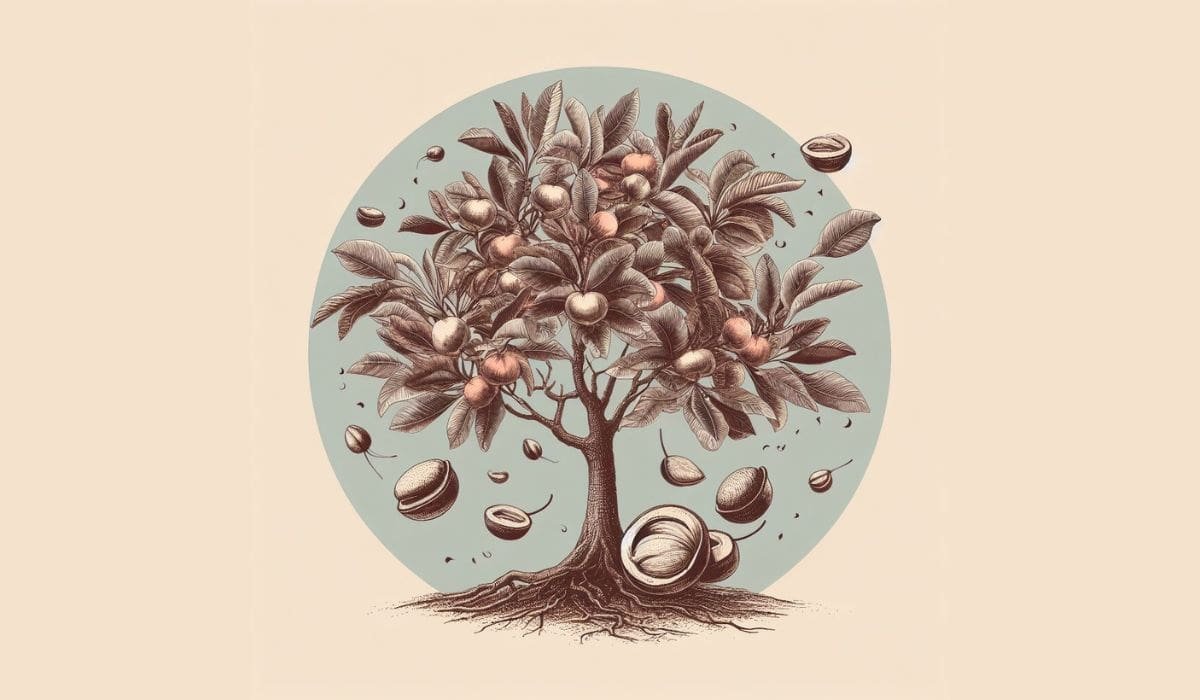
Semecarpus anacardium, a tree deeply rooted in Ayurvedic tradition, holds immense potential as a natural remedy. Native to India, this tree offers a wide array of health benefits. Its nuts, not only edible but also rich in bioactive compounds, possess powerful anti-inflammatory and antioxidant properties.
The Semecarpus anacardium can assist in managing various health conditions, thereby promoting overall well-being. However, it is crucial to exercise caution when using this herbal ally due to its potency.
In this article, we will explore the numerous ways in which Semecarpus anacardium can bolster your health, highlighting the necessary precautions for safe usage.
Quick Facts
| Feature | Description |
|---|---|
| Common Names | Marking nut tree, Malacca bean tree, marany nut, oriental cashew, phobi nut tree, varnish tree |
| Scientific Name | Semecarpus anacardium |
| Family | Anacardiaceae |
| Order | Sapindales |
| Distribution | Native to India, found in the outer Himalayas to the Coromandel Coast |
| Description | Medium-sized deciduous tree reaching up to 12-15 meters in height |
| Bark | Rough, dark brown |
| Leaves | Large, simple, obvate-oblong, 9-30 cm long, pubescent beneath |
| Flowers | Small, greenish-yellow, in panicles |
| Fruit | Drupe, 2-3 cm long, black when ripe |
| Nut | Ovoid, glossy, black, about 25 mm long |
| Traditional Uses | Arthritis, tumors, infections, skin diseases, coughs, asthma, diarrhea, dysentery, snakebite |
| Chemical Constituents | Biflavonoids, phenolic compounds, bhilawanols, minerals, vitamins, amino acids |
| Pharmacological Activities | Antiatherogenic, antiinflammatory, antioxidant, antimicrobial, anti-reproductive, CNS stimulant, hypoglycemic, anticarcinogenic, hair growth promoter |
| Safety | The fruit and nut are toxic and should not be consumed raw. The nut shell contains a caustic, blistering oil. The use of the plant parts should be under the supervision of a qualified healthcare practitioner. |
What is Semecarpus anacardium?
Semecarpus anacardium, commonly known as ‘bhallataka’ in Sanskrit, is a medium-sized deciduous tree found in the Indian subcontinent and Southeast Asia.
Its rustic appearance is marked by grayish-brown bark and oblong-elliptic leaves. The plant belongs to the Anacardiaceae family, sharing its botanical group with cashews and pistachios.
The fruits, known as drupes or marking nuts, turn black when ripe.
This plant has a history deeply rooted in traditional medicine, especially in Ayurveda. Ancient practitioners in India recognized its potential and integrated it into their holistic approach to health and wellness.
Semecarpus anacardium has been valued for its various healing properties, and its effectiveness in addressing skin conditions, respiratory issues, and digestive disorders is particularly noteworthy.
Despite the passage of time, this plant continues to be esteemed for its therapeutic applications.

Semecarpus Anacardium Health Benefits
Semecarpus anacardium offers a wide range of health benefits that can greatly improve your well-being. Here’s a table outlining all known Semecarpus anacardium benefits.
Important: Keep in mind that clicking on a the links found in brackets will take you to scientific studies, research papers or other trusted sources.
| Health Benefit | Description |
|---|---|
| Skin Conditions | The tarry oil present in the pericarp of Semecarpus anacardium fruit can cause allergic rashes, known as urushiol-induced contact dermatitis. However, the plant is also used in Ayurvedic medicine for skin conditions such as inflammation. [4] [5] |
| Respiratory Problems | Semecarpus anacardium is used in Ayurvedic medicine to manage respiratory tract disorders, including common cold, cough, and asthma. It is considered effective in treating kapha dosha vikruti, a concept in Ayurveda related to respiratory disorders. [5] [2]. |
| Digestive Disorders | The plant is used to relieve various digestive disorders such as abdominal distension, constipation, and piles. It is also considered a deepaneeya herb, which helps promote digestion. [6] |
| Sexual Dysfunction | Semecarpus anacardium is used in Ayurvedic medicine for improving sexual power, increasing sperm count, and curing diseases related to the reproductive system. [2] |
| Rheumatoid Arthritis | The fruit of Semecarpus anacardium is administered internally in cases of rheumatism, indicating its traditional use in managing rheumatoid arthritis. [4] |
| Antiatherogenic | Semecarpus anacardium shows antioxidant properties and can scavenge superoxide and hydroxyl radicals at low concentrations, inhibiting the peroxidation of lipids in low-density lipoproteins, which is the main cause of atherosclerosis. [1] |
| Anti-inflammatory | The extract inhibits the production of proinflammatory cytokines and suppresses nuclear translocation of transcription factors NF-kappaB and AP-1. [1] |
| Antimicrobial | The fruit and nut extract shows antimicrobial properties. [1] |
| Anti-reproductive | Semecarpus anacardium extract feeding caused an antispermatogenic effect evidenced by a reduction in the numbers of spermatogenic cells and spermatozoa in male albino rats. [1] |
| CNS stimulant | It is used as a CNS stimulant in Ayurvedic medicine. [2] |
| Hypoglycemic | It has hypoglycemic properties. [3] |
| Anticarcinogenic | The nut extract has been investigated for its potential anticarcinogenic properties. [1] |
| Hair growth promoter | It is used as a hair growth promoter in Ayurvedic medicine. [2] |
1. Anti-inflammatory properties
Semecarpus Anacardium has shown remarkable properties in easing conditions like arthritis and inflammatory bowel disease.
Studies have demonstrated that the extract can decrease paw edema and cotton pellet granuloma, which are indicators of inflammation in adjuvant arthritis models. [7]
Additionally, it inhibits the production of pro-inflammatory cytokines and restores collagen and glycosaminoglycan levels in arthritic rats. [8]
One of the active compounds in the extract, tetrahydroamentoflavone (THA), plays a crucial role by impeding prostaglandin biosynthesis. [8]
This action is similar to how aspirin works, but with the added benefits that nature provides.
2. Antioxidant properties
Semecarpus anacardium extract is known for its powerful antioxidant properties, which can help protect your body against oxidative stress. This plant has a long history in traditional Indian medicine and has been found to increase the activity of antioxidant enzymes while reducing enzymes like LDH in conditions such as lymphoma.
A study conducted on rats suggested that Semecarpus anacardium has high free radical scavenging effect and is useful in treating heart diseases, CNS disorders and in cancer such as hepatocellular carcinoma, mammary carcinoma etc. [9]
Another study reported that the ethyl acetate stem bark extract of Semecarpus anacardium demonstrates strong antioxidant capabilities, with components like butein showing similar activity to well-known antioxidants like rutin. [10]
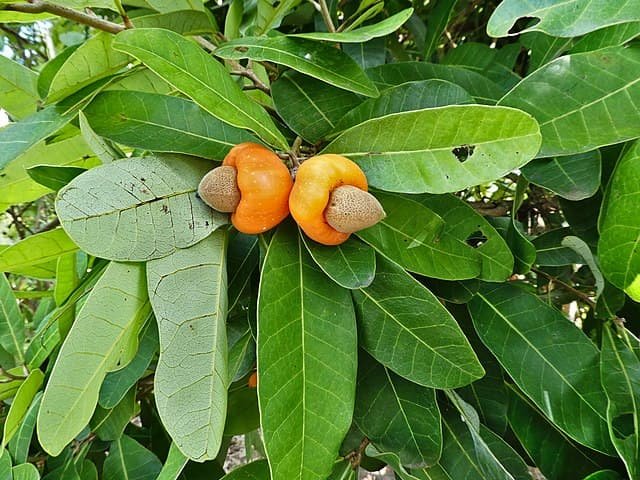
3. Anticancer properties
When it comes to finding natural remedies for cancer, the nut extract from the Semecarpus anacardium plant is gaining attention for its ability to inhibit the growth of human breast cancer cells.
The nut extract doesn’t just stop the cancer cells from growing, it actually triggers signals that lead to their programmed death, making it an effective anticarcinogenic agent.
A review article published in Frontiers in Endocrinology suggests that Anacardium plants, including Semecarpus anacardium, have antioxidant, antimicrobial, and anticancer effects. [11]
Another study found that the ethyl acetate extract of the leaves of Semecarpus anacardium suppressed tumor growth in mice bearing Ehrlich ascites carcinoma cells and prolonged the survival of tumor-bearing mice. [12]
4. Antidiabetic properties
Semecarpus anacardium has been found to have antidiabetic properties, making it a potential aid in managing blood sugar levels.
Research suggests that bioactive compounds from Semecarpus anacardium can help regulate blood sugar and improve insulin sensitivity, which is crucial for individuals with diabetes. [13]
A study conducted on rats suggested that Semecarpus anacardium has the potential to alter glucose metabolism and improve insulin sensitivity. [14]
Another study conducted on diabetic rats demonstrated that Koenidine, a metabolically stable carbazole alkaloid isolated from the leaves of M. koenigii, demonstrated a considerable reduction in the postprandial blood glucose level and improved insulin sensitivity. [15]
5. Hair growth promotion
Studies suggest that the active compounds in the nuts of this tree could help unlock lustrous, thick locks. By harnessing the power of nature, we may be able to address those frustrating hair concerns.
This natural remedy, deeply rooted in traditional medicine, has the potential to nourish the scalp and strengthen hair follicles.
Although there is limited scientific evidence to support the claim that Semecarpus Anacardium can help with hair growth, a review of traditional medicine practices suggests that Semecarpus Anacardium can be used to promote hair growth. [16]
Also, a study conducted on rats suggested that the use of Semecarpus Anacardium has hair growth promoting effects. [17]
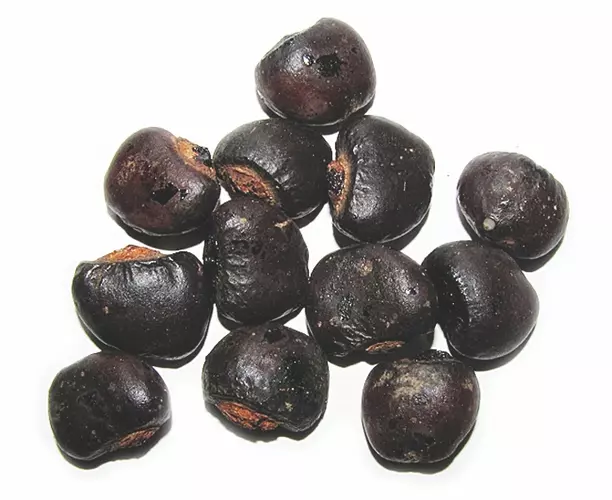
6. Enhances cognitive function
Semecarpus anacardium is a plant with numerous benefits, and one of them is its potential to enhance cognitive function. The extracts of this plant have been found to improve memory and learning processes. By incorporating Semecarpus anacardium into your wellness routine, you may experience faster recall of details and a better understanding of complex concepts.
Research suggests that the cognitive enhancement properties of Semecarpus anacardium may be linked to its antioxidant effects. This means that it can help protect your brain cells from damage caused by free radicals.
More specifically, a study conducted on rats suggested that the use of Semecarpus Anacardium has neuroprotective effects and can help improve memory. [18]
7. Skin conditions
If you have skin conditions like psoriasis, eczema, or ringworm, Semecarpus anacardium could provide relief. This amazing tree has been used in traditional medicine for centuries because of its powerful nut extracts.
When used correctly, Semecarpus anacardium can soothe your skin, reducing redness and irritation. However, it’s important to approach this herbal remedy with caution due to its potency.
It’s always a good idea to consult a healthcare professional before incorporating it into your skincare routine.

8. Respiratory problems
Semecarpus anacardium’s nut extract isn’t only known for its ability to heal the skin, but it can also provide relief for respiratory issues like asthma and bronchitis.
If you’re struggling with a persistent cough or the tightness in your chest that often accompanies respiratory conditions, this extract could offer you some much-needed relief.
The active compounds in the nut work to reduce inflammation and make breathing easier, providing a gentle yet powerful solution to managing your symptoms.
9. Digestive disorders
Incorporating Semecarpus anacardium into your treatment plan may be beneficial if you’re experiencing digestive disorders like indigestion, diarrhea, or constipation.
It helps relieve internal infections, intestinal worms, diarrhea, colitis, and hemorrhoids.
This traditional Indian herbal medicine has a long-standing reputation in Ayurvedic medicine for offering a natural alternative for managing digestive disorders.
10. Sexual dysfunction
If you’re experiencing sexual problems, Semecarpus anacardium may offer natural therapeutic benefits. This traditional Indian remedy has been used to address issues such as difficulty getting or maintaining an erection and reaching orgasm too quickly.
Although there is limited scientific evidence to support this claim, a study conducted on male mice suggested that the systemic use of chloroform extracts of Semecarpus Anacardium has sexual behavior enhancing effects. [19]

11. Rheumatoid arthritis
Traditional medicine has used Semecarpus anacardium, to help alleviate the pain and inflammation associated with rheumatoid arthritis.
Semecarpus anacardium has been used in Ayurvedic medicine to treat rheumatoid arthritis. [20]
A study published in the Journal of Ethnopharmacology found that Semecarpus anacardium extract had anti-inflammatory and analgesic effects in rats with adjuvant-induced arthritis. [21]
Another study found that the chloroform extract of the nut significantly reduced acute carrageenan-induced paw edema in rats and was active against the secondary lesions of adjuvant-induced arthritis. [22]
Which parts of the plant are used?
Different parts of the Semecarpus anacardium plant have medicinal properties that can be utilized.
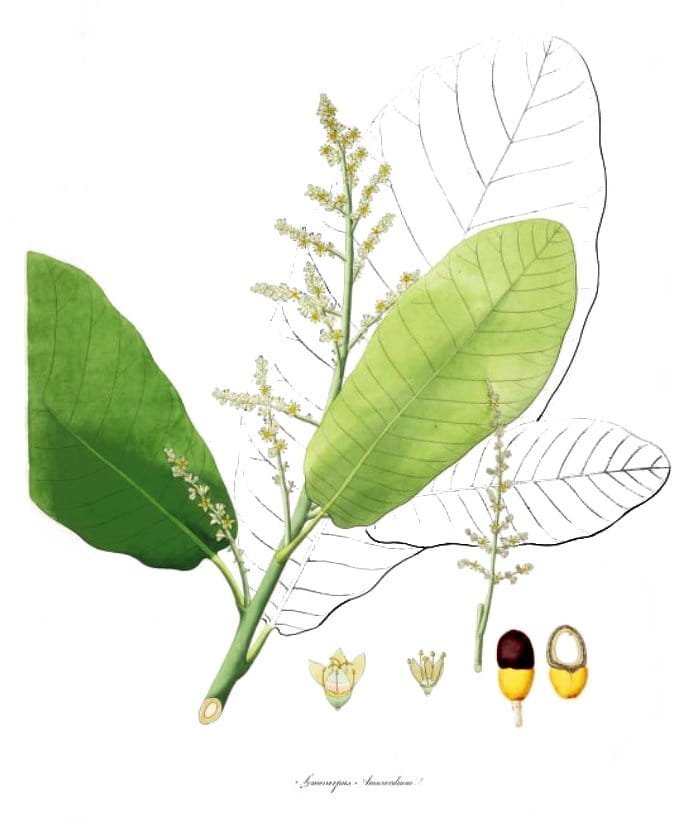
For example, the nut, bark, and leaves all play a role in promoting health and healing.
- The nut, known for its strong anti-inflammatory and antioxidant activities, is often the star in traditional remedies. It has been shown to reduce paw edema in arthritis models and even inhibit the growth of cancer cells.
- The bark of the plant also has value, with the stem bark specifically demonstrating powerful antioxidant activity. Compounds like butein found in the bark have effects comparable to well-known antioxidants.
- Additionally, the leaves of Semecarpus anacardium contribute to its overall therapeutic profile.
Each part of the plant has its own significance, making it important to consider all aspects when utilizing Semecarpus anacardium for its medicinal benefits.
Nutritional Value of Semecarpus anacardium
Semecarpus anacardium, a versatile tree, offers a wealth of nutritional compounds in every part. The nuts, leaves, and bark of this tree contain bioactive substances that contribute to its medicinal properties. It serves as not just a source of traditional remedies, but also a valuable repository of nutrients.
Let’s take a closer look at the nutritional profile of Semecarpus anacardium: [23]
| Nutritional Component | Value per 100g |
|---|---|
| Energy | 596 Kcal |
| Protein | 21.2g |
| Fat | 46.9g |
| Carbohydrate | 22.3g |
| Fiber | 1.3g |
| Ash | 2.4g |
| Vitamin A | 20.0 RE-μg |
| Calcium | 90mg |
| Iron | 2.5mg |
| Phosphorus | 350mg |
| Zinc | Not specified |
The nutritional value of Semecarpus anacardium per 100g includes 596 Kcal of energy, 21.2g of protein, 46.9g of fat, 22.3g of carbohydrates, 1.3g of fiber, 2.4g of ash, 20.0 RE-μg of vitamin A, 90mg of calcium, 2.5mg of iron, 350mg of phosphorus, and the zinc content is not specified
During my research, I also stumbled upon this image that shows a more detailed analysis of Semercarpus Anacardium minerals and amino acids. [24]
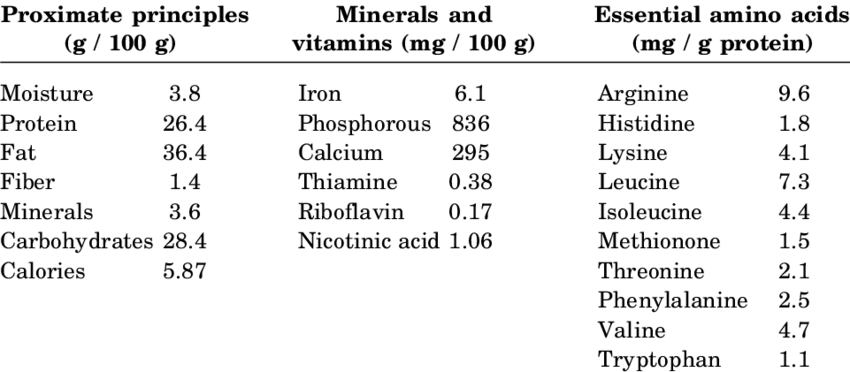
Chemical Composition
The chemical composition of Semecarpus anacardium contains a variety of bioactive compounds that contribute to its medicinal properties.
These natural substances play a crucial role in traditional medicine and have numerous health benefits.
- One notable compound is anacardic acids, which have strong anti-inflammatory, antioxidant, and anticancer effects.
- Another compound, bhilawanols, has been found to combat bacterial and fungal infections and reduce inflammation.
- Additionally, the plant contains tannins and flavonoids, which have antioxidant and antimicrobial properties.
Ayurvedic Perspective
Semecarpus anacardium, according to Ayurveda, has powerful properties that can help balance your kapha dosha, which is responsible for water and earth elements in the body.
This traditional healing system recognizes the plant’s potential in treating various conditions that arise from an imbalance in kapha.
Let’s explore how Semecarpus anacardium can be beneficial for your health:
- Skin Health: Semecarpus anacardium is often used in formulations to address skin conditions like eczema, psoriasis, and ringworm. Its natural properties can help soothe and heal these irritating skin issues.
- Respiratory Relief: If you suffer from asthma, bronchitis, or persistent coughs, Semecarpus anacardium can provide relief. It has been known to alleviate symptoms and promote easier breathing.
- Digestive Aid: When it comes to digestive issues like indigestion, diarrhea, or constipation, Semecarpus anacardium can be helpful. Its properties can aid in improving digestion and regulating bowel movements.
- Anti-Arthritic: Semecarpus anacardium offers relief from pain and inflammation associated with rheumatoid arthritis. It can help ease discomfort and improve joint mobility.
Culinary and Industrial Uses
Semecarpus anacardium has more to offer than just its medicinal properties. It can also be used in cooking and various industries.
The kernels of Semecarpus anacardium, after careful processing to remove the toxic shell, have a delicious nutty flavor that can enhance dishes like curries.
If you roast these kernels, their taste becomes even more intense, making them a unique addition to your spice collection.
But Semecarpus anacardium goes beyond the kitchen. The oil extracted from its seeds is incredibly versatile and finds its use in multiple industries.
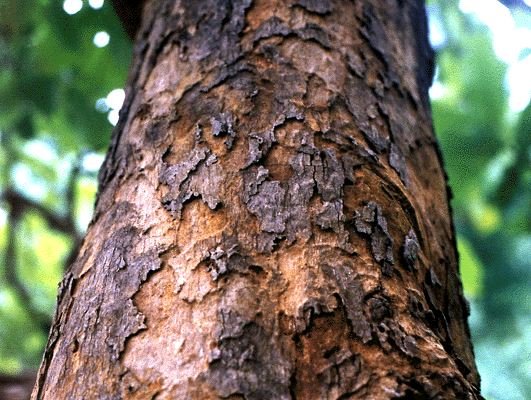
For example, it is used as a floor dressing, as an additive to lacquers, dyes, and insulating material, in the plastics industry, for regenerating rubber materials, and to protect wood from white ants. [16]
Potential Side Effects and Interactions
While Semecarpus anacardium offers various benefits in culinary and industrial applications, it’s crucial to recognize that it can also cause adverse reactions.
One common issue is contact dermatitis, which is characterized by redness and itching. This is often caused by the resin’s cardanol content. In addition, gastrointestinal disturbances, headaches, and dizziness may occur.
Furthermore, Semecarpus anacardium can interact with certain medications, such as:
- Anticoagulants: Semecarpus anacardium may interact with anticoagulants, increasing the risk of bleeding. [25]
- Propranolol: A study found that Semecarpus anacardium may interact with propranolol, a beta-blocker used to treat high blood pressure and heart problems, against isoproterenol-induced myocardial damage in rats. [26] [27]
These interactions could amplify the effects of the medications or lead to complications.
It’s also worth noting that this plant is not recommended for pregnant or breastfeeding women, as well as those with liver or kidney disease.
Availability and Usage Today
Semecarpus anacardium is easily available in different forms, such as dried nuts, powders, and extracts. Here’s how you can incorporate it into your daily routine:
- Tea: You can brew a potent tea using the powdered nuts, which has been used as a traditional remedy for various health concerns.
- Topical Application: The oil extracts of Semecarpus anacardium are known for their anti-inflammatory properties. You can use them in ointments to soothe and heal skin irritations.
- Dietary Additive: Adding the powder to your foods, such as smoothies or yogurts, can provide an antioxidant boost. This can support your overall health and well-being.
- Supplement: Capsules or tinctures of Semecarpus anacardium are available, and you can take them as directed to enjoy various health benefits.
Frequently Asked Questions
Bottom Line
Semecarpus anacardium is a fascinating plant that has been used for centuries in traditional medicine. Its nuts, packed with anti-inflammatory and antioxidant properties, offer a wide range of health benefits. In Ayurveda, this plant is highly respected for its ability to balance the body’s energies.
While it may not be a common ingredient found in your kitchen pantry, it has garnered attention for its industrial applications.
However, it’s important to approach it with caution, as it can have potent effects and potential side effects.
Explore More Herbs
